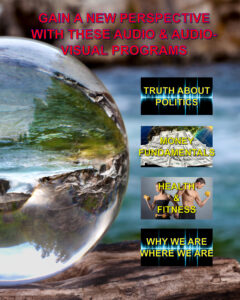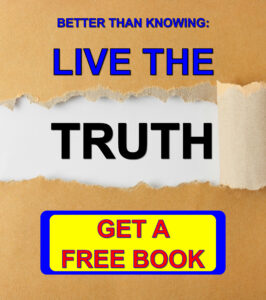Why doesn’t anyone want to really talk about the truth of American politics. Is it too ugly? Too difficult? Too painful? Or is the truth incriminating? It seems we can’t handle the truth.
This is the preview of Chapter 9 of Are Americans Really this _________? If you would rather listen to the content than read CLICK HERE.
I toyed with naming this section A Masters Course in Politics. And while “a masters course” does suggest exploring and defining the critical points of what politics is all about, The Truth about American Politics more accurately invokes a sense of the pervasive, dystopian nature of political misdirection, lies and deceit dominating the American political scene these days.
In the United States and unfortunately too often around the world, politics is elevated to a lying, cheating, stealing art form, an art form with many accomplished masters. We are going to try to make sense of the political art form.
Politics is fundamentally about power. And power is something we all want, something we all aspire to possess; to have.
At its most basic level politics is the complex of relations between people.
A broader and more generalized definition of politics is the art or science concerned with governing.
From a personal perspective politics is about acquiring, employing and maintaining power or control over our own lives in relation with other people. You might say gaining control of or controlling others. People’s quest for and management of power is very real, incredibly significant and universal.
We cannot escape politics any more than we can escape breathing. We desire to control our own lives – to be in control – to control what we think and what we experience. But we will get into all that.
In this, The Truth about American Politics section we examine politics, not the follies of political actors, but rather underlying political motivations and strategies, and the results those motives and strategies produce for better or for worse in a, in our democratic republic.
Better or worse always depends on your perspective, where you sit relative to the power flow, the power dynamic.
Sometimes, quite often really, what politically is terrible policy for a nation or its people is quite lucrative for a privileged few. If you happen to be one of the privileged few then you will have a view diametrically opposed from the many as to the utility of those policies and those political decisions.
And that, that is the mess, that is politics.
While politics is a component of all human relations – families, friendships and within neighborhoods and communities – in this section we focus on formal political settings: governments, corporations, and large organizations. You will come to see, what applies in formal settings applies in informal personal relationships as well.
Here we reveal the fundamentals of politics.
If you are an idealist like me, you are going to be somewhat disheartened by what you read in The Truth about American Politics. Politics and human nature can be brutal.
As a perennial optimist however, I still see good. I see progress. I see opportunity and possibility. Somehow, despite the confluence of forces working against society’s advance we have made it to here. And I believe, if we can get enough people to see the light, we can pull ourselves together and advance farther still. Time will tell.
One of the most difficult assessments we all must make when it comes to politics – acquiring, using and maintaining power – is motive.
Why do I, or why does an individual, or why do individuals together apply power as they do?
Am I, is an individual or are individuals together applying power for personal advantage?
Or am I, or is he or she or a group attempting to apply power for the advancement of others, for collective benefit or a greater good?
Discerning and distinguishing motive is no easy task.
As J.P. Morgan said: “A person always has two reasons for doing anything. A good reason, and the real reason.”
To understand politics, we examine the real reason: Why we do what we do.
We are going to dig into and examine trust. All healthy, all positive – that is non-destructively competitive – human relationships are built on a foundation of trust. Without trust we cannot have functioning communities, a dynamic economy or a viable open society. Without trust we just have conflict.
Trust is a foundational element of human power; therefore trust is a foundational element of politics. We explore trust is some detail.
From my perspective, the United States is in decline. I realize however, your position on advance or decline is relative to where you stand.
To illustrate how the United States is doing overall I use the eighty-twenty rule. While reality is more nuanced than 80-20, simply put, twenty percent of Americans are doing great, while eighty percent are somewhere between treading water to sinking fast.
If you have been concerned about the decline of America you have probably wondered: Are Americans really that stupid? And are politicians really that inept, incompetent, or corrupt?
We continue to ruminate on these apparent enigmas as we proceed.
The answers to those questions are not as simple as they seem.
We are also going to explore in further detail, the idea of leadership. As social beings, human society and the human experience are all about relationships. What other people think and do matters. Not all the time and everywhere, but what others do influences us. Most of us go along to get along. But there are always outliers: people who are extremely motivated and driven, and people who absolutely are not motivated or driven. Most of us are in the middle – not driven but not sloths either.
Like life is all about relationships, the advance or decline of society is all about leadership – taking the right cues from the right people moving in the right direction.
Many Americans, dare I suggest, most Americans look to politicians for leadership. Looking to politicians for leadership is like placing a rattlesnake on your front walkway to deter burglars. While it may be effective in the short-term, it is generally not a good idea. Politicians have a purpose. But in a democratic society, that purpose must be carefully managed. Something we the people have been failing to do.
In the final chapter of this section I point to the foundational revival changing course requires – the change, we the people must make. In the Epilogue I offer practical prescriptions or solutions for advancing together. The efficiency and effectiveness of collective solutions can only be measured in hindsight. We never know what is possible unless and until we try.
As the African adage advises: “If you want to go fast, go alone. If you want to go far, go together.”
I believe we can go far fast, but only if we go fast together.
Before we charge ahead we must come to terms regarding the basics – the fundamentals.
What is the truth about politics?
Let me know what you think of the this book preview in the comments section below. Look for Chapter 10 – The Ugly Truth on Thursday.
All the best, Scott


